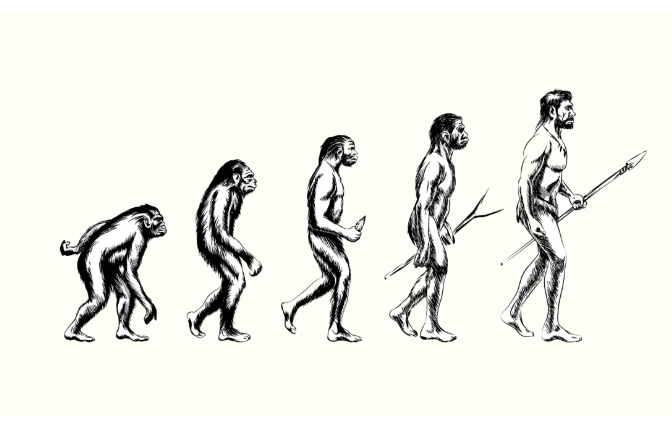Anthropology in its broadest terms is the systematic study of humans, to understand our evolutionary origins, and to understand humanity and the way we think. These practices can be applied in many settings to create more thoughtful environments.
Both Mr. Lynn, a social studies teacher, and Mr. Williams, an English teacher, teach the anthropology course here in Orono. In which, they teach the rights and wrongs of practicing anthropology, and what tools to think with.
Anthropology was started in Orono 20 years ago by Mr. Eklund and Mr. Herring. Since then, Mr. Williams and Mr. Lynn took over teaching the class. It is a social studies and English credit at Orono, and students are allowed to choose which credit they want. It is a rigorous class that is structured just as a college course on Anthropology would be, so to some, it is quite difficult.
According to Aiden Ward, a student currently taking anthropology, to have a college-level class, you need to make it more challenging. Part of the problem of why no one takes the class is because no one knows what it is. In the 2022-23 school year, the course of Anthropology had over 50 students, and as of 2023-24, the class has around 20 students.
The Orono High School course catalog, “Anthropology seeks to utilize various sciences in the exploration of what it means to be human…the course is designed to challenge assumptions and create multiple perspectives about who we are, where we came from, and where we are going as a species. The development of a disciplined mind and one’s confidence in reason will be a consistent emphasis.”
To create a disciplined mind, anthropologists utilize many tools for thinking, one of which is called ‘critical cultural relativism’. Critical cultural relativism calls for the understanding of a given culture or individual relative to themselves, without deferring truth. Understanding oneself while considering others is an important aspect of the class, and its instructors hope that it can be utilized in our daily lives and other classrooms.
It is believed that other teachers can utilize this type of thinking by attempting to understand each student, what they’ve gone through, and what effect that has on their learning, according to senior Noah Feldman. Noah is not a student of anthropology, but when given some background, he claimed that it would lead to a more positive impact on the kids’ futures.
While critical cultural relativism is useful, it is but one of many tools that can be used to tackle problems and social situations. The course of anthropology is set up to give students a chance to understand each of these tools, and in what situations they can be applied, without having them lose touch with their reality.
The first unit of the class is about utilizing those learning tools, methods, and mindsets that are taught in real college courses about anthropology, because teaching the youth to learn how to use their full mental potential, their skills, and how to learn is so much more important than the actual content of any particular class, according to Anthropology teacher Mr. Williams.
The curriculum used in Anthropology is designed to build up the mind and skills of an individual, and also to learn. Williams continued to say that actual knowledge that will stay with someone has to be continually incorporated into new knowledge, and that is what the class is designed for. Anthropology attempts to nurture these practices in students so that they can benefit from them and consistently make use of them in their futures.
The potential for anthropological thinking can enter into the simplest of human interactions. Mr. Lynn, the second Anthropology course instructor, believes that you don’t have to rid yourself of who you are, you just need to understand who you are in the context of humanity’s greater scope. To apply anthropology, in his opinion, means to acknowledge the differences in humans, and to also understand the sameness.
However, there are always latent functions to every action, and according to anthropology student Aiden Ward, if you look so much at one thing, you start to discover things that are not there. It is important to grant each student their privacy. Large-scale analysis of Orono schools could make some students feel uncomfortable, or that they aren’t safe when they are just trying to learn. A school environment should be warm and welcoming, rather than cold and watchful.
Due to the significant drop in class participation, it may be time for Orono to evaluate what it is potentially missing, but it is also important to understand what it could lose through a change. Anthropology is a class that is not introduced in many high schools, and perhaps it should be considered a privilege.

















































